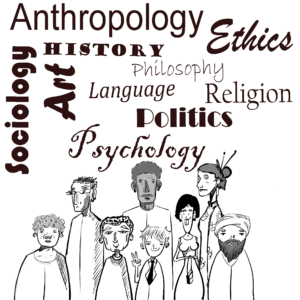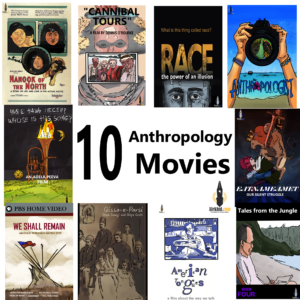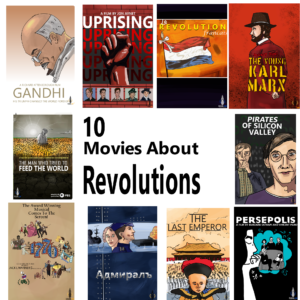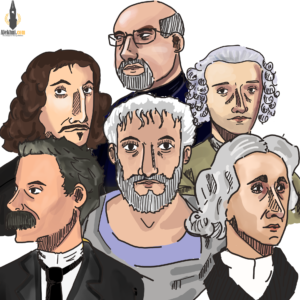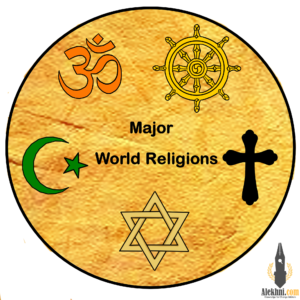A Guide to Pure and Applied Careers in Humanities and Social Sciences!

One of the many misconceptions in this world is that you can’t make a career out of humanities or social sciences. Or that these subjects are useless. Sadly, people are compiling lists on the internet where social studies subjects are termed as the most useless college majors. This is a terribly outdated and obsolete belief. It is true that people struggled to secure decent paying and stable social studies jobs in the past, which could be credited to the lack of basic necessities and high demand for labor possessing mechanical and technical skills during the industrial revolution and the inception of the I.T paradigm. However, if history tells us anything about the most powerful careers, it’s that the world has historically always been dominated by the people who practiced the humanities and social sciences. This could be explained very well by Maslow’s self-actualization pyramid.

Maslow’s Hierarchy of Needs:
Abraham Maslow (1908–1970) was an American psychologist known for his work in the field of humanistic psychology and his development of the “Hierarchy of Needs” theory. Maslow’s Hierarchy of Needs is like a ladder that shows what people need for a good life. It starts with basic stuff like food, water, and safety at the bottom. As we climb up, we reach things like friendships, confidence, and achieving goals. At the very top is “self-actualization,” which means becoming the best version of ourselves. This pyramid helps us understand that we build on our needs step by step. First, we make sure we’re safe and healthy, then we focus on our feelings and relationships. It’s a way to see what’s important in our lives and how we grow.
Maslow’s Hierarchy of Needs can shed light on popular careers in society. Basic needs like healthcare and food align with jobs in medicine and agriculture. Safety needs link to careers in law enforcement and engineering. Jobs in education and counseling support social and belonging needs. Esteem needs tie to professions in arts, sports, and leadership. Finally, self-actualization connects with research careers and creative fields. The hierarchy shows that as society’s needs evolve, so do career preferences. It was during the industrial revolution that even the basic needs of the people struggled to be fulfilled and so we focused more on the basic necessities in life such as food and energy. Moreover, WW2 made it worse and societies worldwide struggle to maintain even those necessities. This is the era when the humanities and social sciences had a fall. However, slowly, it started to change as we evolved to be more developed.
Today, things are rapidly changing. People are achieving their self-actualization phase. Most of the world is progressing fast enough to embrace social studies again. In fact, there has never been a better time in the history of humankind when social studies have been so much in demand.
Social Sciences and Humanities are Essential Careers:
Debunking the misconceptions already, many people think that the subjects of social studies don’t require any expertise as they are all subjective and there is scope to make things up. People often think these are not marketable or employable fields. Not only is this statement biased and generalized, but also untrue.
It is a matter of fact that social studies can also be empirical and objective, even though, they also have subjects that are subjective and more philosophical in nature. Psychology, for example, is a very scientific and empirical discipline of the social sciences. Nevertheless, no matter which discipline one practices within the humanities or social sciences, one needs to practice it for years with great dedication to be an expert in the field.
Coming to the employability scope, there are unlimited practical applications of the subjects in the humanities and the social sciences that have always been in high demand across various industries and sectors. Moreover, the skills and knowledge that the students in humanities and social sciences possess naturally are vastly valued by employers. Unlike students who major in STEM fields, students in social studies get more exposure to holistic development, which facilitates their learning about people and emotions. These skills can only be brought to companies and organizations by experts in these fields. So, they are always on the lookout for humanities and social science students to hire.
Applied and Practical Fields in the Humanities and Social Sciences:
It is so important to emphasize the fact again that social studies are not useless disciplines. Quite the contrary, they are the base and spirit of every industry and sector. They have unique practical applications and are sought-after by a diverse range of employers, from education and law to technology and tourism. Following are some practical careers you can pursue in humanities and social sciences:

Internet and Technology:
It might be quite surprising for many to know that even the tech giants such as Google emphasize hiring humanities and social science majors. After investigating heavily into the needs, demands, and emotions of the internet, Google incorporated experts such as anthropologists, ethnographers, humanists, and even artists to cater to the needs of the internet. Curious? The reason is quite simple: the Internet exists for people. And to understand those people you need to hire people who are people experts. The STEM candidates most certainly don’t have an edge here. So, tech companies hire students who have studied about people and cultures. Knowing to code with a technical background is not at all the only option you have to join the world of the internet. Even though, it might be an advantage if you are also well versed in the codes and algorithms.
You can read an interview of Kristina Leipold, who worked for Google Arts and Culture. This will help you get a glimpse into what a career as a social studies expert looks like in the tech space. Moreover, machine learning and artificial intelligence require high-quality, in-depth data to operate efficiently. So, the tech space might be the right option for you if you want to impact the world of the internet, applications, and machines while enjoying the liberty of a career in liberal arts, humanities and social sciences.

Law and Justice:
There are no clouds of doubt over the fact that the law and justice fields require an in-depth understanding of the moral, philosophical, and behavioral aspects of human societies. Ethics, itself is a very complex topic to comprehend and requires one to develop a philosophical mindset. The subjects in humanities and social sciences such as anthropology, history, sociology, and of course, history help in developing all the skill sets and mindset that it takes to be a good lawyer or a responsible and just Judge. Subjects in social studies or liberal arts are the most common majors of students accepted in law schools. so, if you are passionate about getting people justice, either by representing them as lawyers, facilitating justice as a judge, or just guiding companies and individuals about the proper legal practices, you should consider majoring in the humanities and social sciences.

Ethics Compliance:
Companies and institutes that carry on research and manufacturing need to comply with proper ethical and moral obligations because they are exploiting natural resources and impacting living organisms substantially. For example, there are always debates over whether or not laboratories should use other animals as guinea pigs to test their products or theories. Needless to say, when they deal with people, they have more ethical obligations and responsibilities. To make sure the operations of all these industries are in line with the ethical guidelines, the companies hire experts called ethics compliance officers. They are some of the most required professionals across industries. They help companies and laboratories get a better picture of how their actions fit into the ethical and moral brackets. If the thought of ethical intervention and rights for all excites you, this could be the perfect career for you.

Museums and Tour Sites:
Museums require curators, archeologists, anthropologists, researchers, guides, and other experts to operate- and so do other popular tourist destinations, such as cultural heritage sites and structures. Undeniably, there is a visible monopoly of humanists, and social scientists at these places. These experts help museums and cultural sites to know the historical and cultural significance of their possessions and heritage. They also facilitate the display and preservation of heritage objects and sites. Expert archeologists help in dating ancient and antique objects and ruins and contribute their part in developing knowledge and insights into our past. They also help us re-create the images and structures of ancient civilizations.
Apart from this, in a post-colonial world, which is slowly but surely being taken over by global citizens, decolonizing museums is an important agenda for world governments and global citizens. For the museums and governments to facilitate the repatriation of cultural objects while considering the moral, ethical, historical, and cultural aspects of the repatriations, museums have to unconditionally invest in skilled curators and legal experts who can deal with all of these aspects and have fruitful discussions and dialogues with the various communities and parties involved in the process of repatriations using their efficient communication skills. If museums and heritage fascinate you, this could be your career!
Translations and Interpretations:
Translators and interpreters play essential roles in facilitating communication across languages and cultures. Translators primarily work with written text, converting documents, books, websites, and other materials from one language to another while maintaining accuracy and cultural nuance. They ensure that the original meaning is preserved, making information accessible to a wider audience.
Interpreters, on the other hand, focus on oral communication. They listen to speakers in one language and convey their words and messages in real-time to individuals or groups in another language. Interpreters often work in settings like conferences, business meetings, legal proceedings, and healthcare appointments, enabling effective communication between parties who speak different languages.
Both translators and interpreters require strong language skills, cultural awareness, and a deep understanding of idioms and nuances. They bridge linguistic gaps, facilitating cross-border interactions and fostering global understanding in various fields, such as diplomacy, business, healthcare, and international relations.
You might be interested in these careers if you excel at communication skills and would like to develop a multi-lingual mind.
Media and Journalism:
A career in media and journalism involves exploring and sharing stories that inform, entertain, and influence society. Journalists research, investigate, and report on current events, from local news to global issues, aiming to provide accurate and unbiased information to the public. This again, is closely related to fields such as sociology, anthropology, and social psychology. Not to mention, knowledge of politics, philosophy, and history are essential to pursuing a career as a journalist. If you like some TV personality vibes or would like to keep society updated on recent events, this is your career.
Human Resource and Organizational Culture:
Companies need people to work for them, and managing people is way more complex and sophisticated than managing machines and real estate. So, they need people experts again! No wonder, humanities and social studies majors are the finest choices for these positions in the Human resource departments of companies and organizations. Human resource managers help companies and organizations establish company culture and create learning methods and activities for the employees to learn about it. They are responsible for hiring processes and assigning positions and tasks to the people in teams. If you like to manage people and have leadership qualities as well, an HR position might attract you.
Pure and Academic Fields in Humanities and Social Sciences:
Unlike many mechanical subjects, humanities, and social sciences are not just applied disciplines. Since, they are the precursors of all the complex ideas and innovations that exist in the world, even when they are not practiced to propose any immediate practical applications, they are essential. Not to mention, they are always fun to practice. We are dealing with people and ideas, and it never gets boring. Surprisingly, there are many fields in the social sciences and humanities that you could pursue without worrying about the pressure of producing something or working on any tight deadlines.
Just imagine yourself coming up with great ideas on a beach near the Baltic Sea. Or just being in a library reading your favorite philosophers and thinkers while making your notes. Or observing people at the subway station like a secret agent understanding human behavior. We are talking about those kinds of interesting jobs. Now, it is not wishful thinking if someone told you that you could get paid for just feeding your curiosity and enjoying the disciplines of social studies and liberal arts in their purest form. There are indeed jobs that pay you to practice the pure disciplines of humanities and social sciences. The following are some of them:

Be an Artist:
Studying Humanities can help you develop the skills and knowledge needed to be an artist by equipping you with the required exposure. If you pick up any artist from the past and read their artworks as an art historian or aesthetician, you will realize that they all were influenced by the innovative and historical events taking place at the time.
The paintings of Salvador Dalí, for example, give us insights into Freud’s psychoanalysis, which was a phenomenal work of his time. One of his most famous works, “The Persistence of Memory,” with its melting clocks and distorted forms, can be seen as a representation of the fluidity of time and the subconscious.
Another artist Josef Šíma (aka Joseph Sima) had a unique theme of creating artworks inspired by poems because of his admiration for the field. One of his notable works was in collaboration with the French poet André Breton– Šíma created illustrations for Breton’s book “L’Air de l’eau” (Air of Water). You can see from these couple of cases how interdisciplinary education helps artists develop a stronger voice and unique perspective.
Be a Writer, poet, or novelist:
Similar to the artists, writers, and novelists need inspiration and knowledge to create their works eloquently for their readers. Writers delve deep into the research process to write even simple novels and stories. For more complex ones, they spend years and years dedicatedly compiling the data and knowledge required to pen down their manuscript. Writers leave their readers with food for thought and deep conceptual questions.
Even the most common books have drawn knowledge and inspiration heavily from humanities and social sciences. For example, Jane Austen’s novels, such as “Pride and Prejudice,” “Sense and Sensibility,” and “Emma,” delve into social relationships, class distinctions, and gender roles in Regency-era England. Her keen observations of society’s norms and the interactions between characters are informed by her understanding of social dynamics and human behavior.
Then, George Orwell’s novels, particularly “1984” and “Animal Farm,” are known for their exploration of political ideologies, totalitarianism, and social control. His works are often analyzed in the context of political science and sociology, as they shed light on power dynamics and the dangers of propaganda.
Chimamanda Ngozi Adichie’s novels, such as “Half of a Yellow Sun” and “Americanah,” address complex issues related to identity, race, and colonialism. Her writings draw from postcolonial studies, cultural studies, and sociology to examine the impact of historical events on personal lives.
Another great example is the popular filmmaker and writer, Christopher Nolan, whose movies are always a breakthrough. Nolan collects knowledge through extensive research, reading, collaborating with experts. He immerses himself in the subjects he explores in his films. He seeks insights from various fields to inform his intricate narratives.
If you are planning to pursue humanities and social sciences as a career- writing is a field you could attempt to explore. Maybe you could even contribute something substantial for the generations to come.

Be a Philosophical Thinker:
Many students dream of spending most of their days in the library- delved into their favorite books. And with a career in philosophy, you could even get paid for this! Philosophers read other philosophers, thinkers, and academics to understand what can’t be understood by science. They explore questions like why do we think, what is reality? Who are we? Why are we? What is right or wrong? What is truth and lie?
They attempt to answer questions that live deep in our heads but require deep and critical thinking to get to float up to the surface. Philosophers also interpret other philosophers and try to understand the ethics, morality, and values in society. They leave a vast ocean of knowledge for other fields to dwell upon. They are the precursors for all the great ideas and questions. So, if something as abstract as that interests you, a pure career in philosophy is just for you.
Be a Theologian:
Choosing a career in theology can be an enriching path for curious minds. Theology is the study of religious beliefs, practices, and the deeper meanings behind them. Exploring theology helps us understand different faiths, cultures, and the way people connect with their beliefs. It’s a chance to ask big questions about life, ethics, and spirituality. For students interested in helping others, theology offers a foundation for counseling, social work, or even becoming a religious leader. It’s also valuable for critical thinking and communication skills, which are useful in any career. Pursuing theology can be a journey of self-discovery, empathy, and contributing positively to society by bridging gaps and fostering understanding among diverse communities.

Be a Linguist:
A career in pure linguistics offers a fascinating journey into the world of language. Linguists study the structure, evolution, and diversity of languages spoken worldwide. They delve into the mechanics of how languages work, exploring grammar, syntax, and phonetics. High school students passionate about languages and communication can find exciting opportunities in this field. Linguists contribute to preserving endangered languages, deciphering ancient texts, and even developing tools for translation and artificial intelligence. As a linguist, you might work with communities to document their languages. Conduct research on language acquisition. Or analyze the way language shapes our thoughts and cultures. With a career in pure linguistics, you can unravel the mysteries of human expression and contribute to understanding the fundamental role language plays in shaping our world.
To get a glimpse into what linguists do, check out the “The World Atlas of Language Structures” (WALS). It is a reference work that provides information on the structural properties of languages from around the world. It was created by a team of linguists led by Martin Haspelmath and Matthew S. Dryer. This is a perfect career for those looking to explore the world of words and sounds. And the way humans use them to convey meaning.
Be an Ethnomusicologist:
Ethnomusicology is like a musical adventure around the world. Experts in this field study music from different cultures and communities. They learn about how music connects with history, traditions, and the way people live. Ethnomusicologists gather and share information about music from all over. They talk to people, go to concerts, and write about what they find. This helps us understand how music is important to different cultures and how it brings people together. If you are a musical enthusiast and would love to combine it with academia, this is for you!
Teaching and Education:
The best part about sharing knowledge is that it increases as your share more. That is why educators and learners are the wealthiest people among us. They never run out of what they have, it only compounds. As a humanist or social scientist, you have got the golden key. To unlock the doors of the world of education. If you decide not to use your knowledge anywhere else practically. You could always teach the learners in your discipline to make them impact the world.
Teaching is a selfless profession that requires one to be their best version. As an educator, you can teach at schools, colleges, online platforms, companies, or international organizations. You will also facilitate the creation of educational content for students, such as textbooks and other learning materials. As an educator, you will always be a proud human. You will be actively changing the lives of many students positively. This divine career in humanities and social sciences is for those who want new challenges every day. But also for those who possess the patience of a saint to deal with them maturely.
Bonus: Start Your Own Business or Initiative!
Now that you’ve read all the pure and applied scopes of social studies. You can also go a step further and put these skills and ideas together to create something new and innovative. You can start your own business or organization to impact the world in your way. It might surprise you that some of the greatest CEOs and Founders in history had been liberal arts majors. But don’t be surprised, because business is all about people. And if you can understand their behavior, emotions, needs, wants, and problems, you will run a successful business. You could leave a greater impact on the world by choosing to create something new with a grand purpose.
If you are still hesitant of pursuing a career in humanities and social sciences. Maybe, because of the fear of these careers not being viable, then, just look around and observe. You will see how a lot of things are being taken care of by machines and AI. And maybe you could get a glimpse into the future through this lens. Everything mechanical and technical can be taken care of by the AI. It is the creative fields and understanding of the people and the human emotions, which is only viable for humans. Understanding subjectivity, morality, ethics, and abstract concepts like consciousness and existence are meant for humans to answer. Moreover, art and creativity are only perceived through the complexity of the human mind. And that reason should be strong enough to encourage you to pursue a career in social studies.


